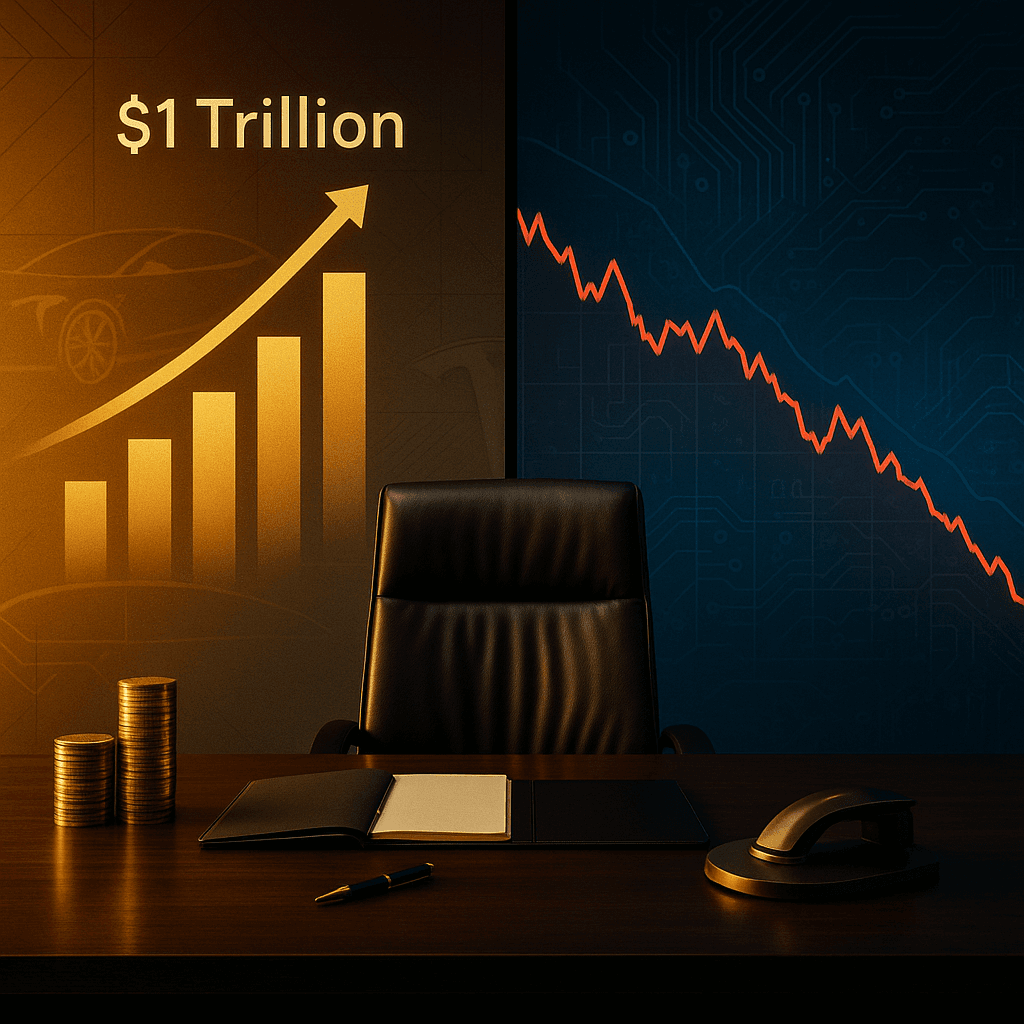Tesla shareholders just handed Elon Musk the biggest CEO payday in history - a nearly $1 trillion compensation package that could reshape corporate governance forever. The 75% approval vote came as AI stocks resumed their brutal selloff, with Nvidia, Microsoft and AMD all closing lower amid valuation fears that have investors questioning whether the AI boom has run too hot.
The market's having a identity crisis, and Elon Musk just became its poster child. Tesla shareholders voted yesterday to approve the CEO's eye-watering $1 trillion pay package - the largest executive compensation deal in corporate history - even as investors dumped AI stocks over concerns that valuations have spiraled out of control.
The approval wasn't even close. Despite opposition from major proxy advisors, 75% of Tesla shareholders backed the deal that grants Musk 12 tranches of stock options tied to ambitious milestones over the next decade. The package increases his voting control from 13% to 25%, giving him unprecedented influence over the electric vehicle giant's direction.
One of those milestones? Delivering 1 million Optimus humanoid robots. Musk claimed Thursday these bots "will eliminate poverty" and be "bigger than cell phones, bigger than anything." The robots don't exist yet in any commercial form, and Musk offered no timeline for when they might hit the market.
While Tesla shareholders were writing Musk the ultimate blank check, the broader tech sector was getting hammered. The Nasdaq Composite plunged 1.9% as traders refocused on the uncomfortable reality that AI stocks have become dangerously concentrated and potentially overvalued. Nvidia, Advanced Micro Devices, and Microsoft all closed lower, putting the major averages on track for their first losing week in months.
The AI reckoning intensified after OpenAI CFO Sarah Friar walked back controversial comments about seeking government support. Earlier this week, Friar had suggested the company was looking for a federal "backstop" or "guarantee" to help fund its massive infrastructure investments. The comments triggered immediate pushback from David Sacks, Trump's AI and crypto advisor, who declared there would be "no federal bailout for AI."
Friar quickly backtracked in a LinkedIn post: "I used the word 'backstop' and it muddied the point. I was making the point that American strength in technology will come from building real industrial capacity which requires the private sector and government playing their part."












